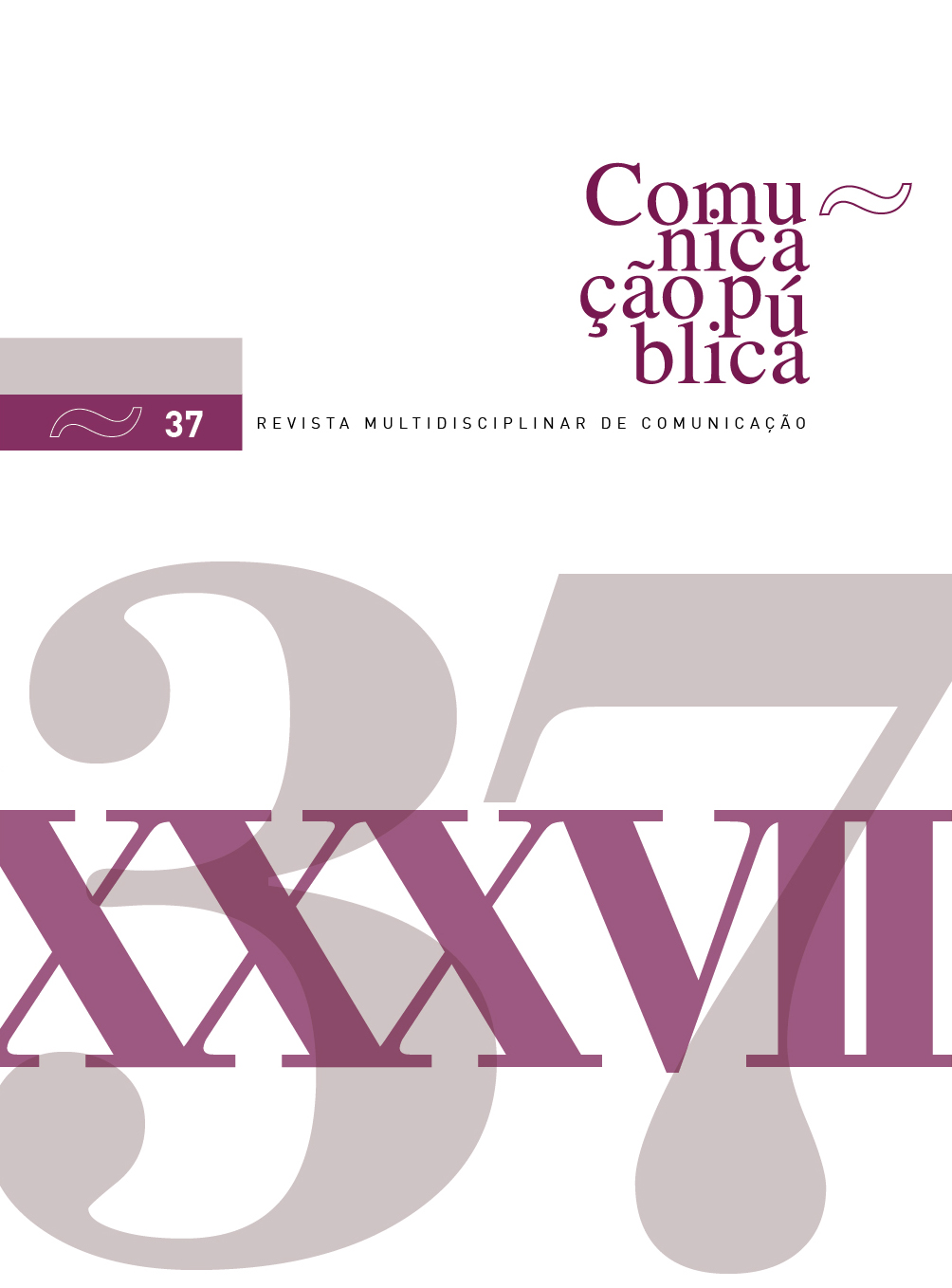Disinformation in the 2022 Elections in Brazil
the lies spread by Bolsonaro’s supporters on social media
DOI:
https://doi.org/10.34629/cpublica.832Keywords:
disinformation, social media, Brazil, elections, far-rightAbstract
Although the use of disinformation is not new in political campaigns, the popularization of the Internet has allowed the establishment of networks for the production and distribution on a massive scale of untruthful content aimed at favoring or damaging a candidate or an argument. The fake news phenomenon is behind the elections of Donald Trump in 2016 and Jair Bolsonaro in 2018. In this article, we analyze 130 pieces of disinformation disseminated on social networks and instant messaging apps by supporters of the former Brazilian president during his failed campaign for re-election in 2022. The data was collected by the Contra Fake project, which established a system to combat disinformation, described here. From the data, we identified thematic and temporal patterns in the use of fake news by Bolsonaro. We also note that the work was not continued after the elections.
Downloads
References
Amadeu, S. & Rovai, R. (2022). Como derrotar o fascismo em eleições e sempre. Editoras Veneta e Hedra.
Arendt, H. (1967). Verdade e política. The New Yorker. Versão traduzida em português. Disponível em: https://edisciplinas.usp.br/mod/resource/view.php?id=5044188.
Barcelos, T. do N. de et al. (2021). Análise de fake news veiculadas durante a pandemia de COVID-19 no Brasil. Rev Panam Salud Publica, 45. DOI: 10.26633/RPSP.2021.65.
Basali, R. (2015). A mentira na política. Revista Ideação, 32. https://periodicos.uefs.br/index.php/revistaideacao/article/download/1297/2761/13557.
Broda & Stromback (2024). Misinformation, disinformation, and fake news: lessons from an interdisciplinary, systematic literature review. Annals of the International Communication Association, 48(4), Taylor & Francis, (pp. 139–166). https://doi.org/10.1080/23808985.2024.2323736.
Cádima, F. Rui (2018). A rede na estratégia da aranha: “Pós-verdade”, política e regressão. Observatorio (OBS*) Special Issue, 021–036. https://obs.obercom.pt/index.php/obs/article/view/1294.
Castells, M. (1999). A Sociedade em rede (3.ª Ed.). V.1. Paz e Terra.
Chadwick, A. (2013). The hybrid media system: Politics and power. Oxford University Press.
Correia, J. C., Jerónimo, P., & Gradim, A. (2019). FakeNews: Emotion, belief and reason in selective sharing in contexts of proximity. Brazilian Journalism Research, 15(3), 590–613. DOI: 10.25200/BJR.v15n3.2019.1219.
Dourado, T. (2020). Fake News na eleição presidencial de 2018 no Brasil. UFBA. http://repositorio.ufba.br/ri/handle/ri/31967.
Farias, L. A. de & Lopes, V. de S. C. (2020). Desinformação acima de tudo, espetáculo acima de todos. Organicom,17(34), 94–100.
FGV DAPP. (2019). Desinformação nas eleições 2018: o debate sobre fake news no Brasil. Ed. Marco Aurélio Ruediger. FGV, DAPP. https://repositorio.fgv.br/items/22e73c94-6e39-4c53-b9f9-49ae888391e6.
Gomes, F. G., Penna, J. C. B. de O. & Arroio, A. (2020). Fake news científicas: Percepção, persuasão e letramento. Ciênc. Educ. (Bauru), 26. DOI: 10.1590/1516-731320200018.
Jardelino, F, Cavalcanti, D. B. & Toniolo, B. P. (2020). A proliferação das fake news nas eleições brasileiras de 2018. Comunicação Pública, 15(28). DOI: 10.4000/cp.7438.
Kalb, M. (2018). Enemy of the people: Trump's war on the press, the New McCarthyism, and the threat to American democracy. Brookings Institution Press. https://www.hks.harvard.edu/publications/enemy-people-trumps-war-press-new-mccarthyism-and-threat-american-democracy.
Lakoff, G. (2004). No pienses en un elefante: lenguaje y debate político. Peninsula.
McLuhan, M. (1964). Os meios de comunicação como extensões do homem. Cultrix.
Santos (2017). O método da autoetnografia na pesquisa sociológica: atores, perspectivas e desafios. Plural — Revista de Ciências Sociais, 24(1), 214–241. https://doi.org/10.11606/issn.2176-8099.pcso.2017.113972.
Silveira, S. A. (2019). Democracia e os códigos invisíveis: como os algoritmos estão modulando comportamentos e escolhas políticas. Democracia Digital. Edições Sesc SP.
Downloads
Published
Issue
Section
License
Copyright (c) 2024 Direitos do Autor (c) 2024

This work is licensed under a Creative Commons Attribution-NonCommercial 4.0 International License.
Os conteúdos da Comunicação Pública estão licenciados com uma licença Creative Commons - Atribuição-NãoComercial 4.0 Internacional.


